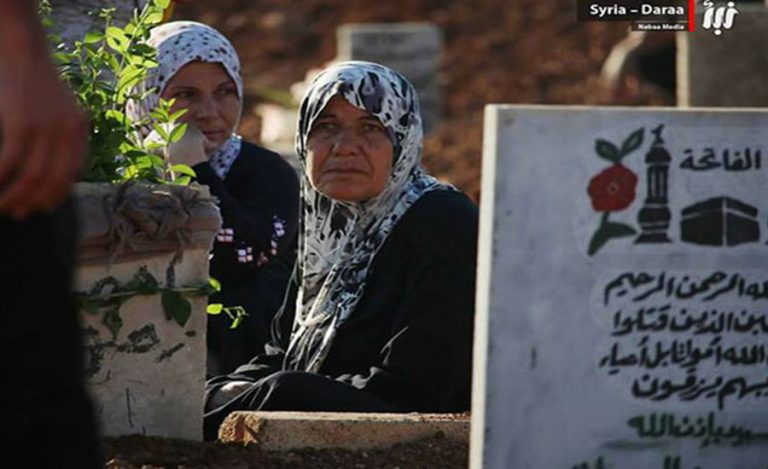Western countries are rushing to implement the “de-escalation” zones agreement on the ground after consultations in Amman revealed outlines of the forces that will be deployed in the Syrian north and south. This has sparked fear among citizens after reports that a deployment of Russian and Iranian forces in Damascus will contribute to the siege of the Eastern Ghouta and the remaining districts around it, while southern Syria will be in the custody of Jordan and the U.S., and the north in the hands of the Turks.
Iran outside Daraa, regime receives Al-Ramtha crossing
The Al-Sharq al-Awsat newspaper said: “The United States, Russia and Jordan have agreed to a tripartite memorandum of understanding including the principles of a safe zone in southern Syria following talks hosted by Amman since mid-May.”
The agreement which the three countries obtained included the principle of establishing safe zones in Daraa and its countryside, including the restriction of non-Syrian forces — in a reference to Hezbollah and militias backed by Iran — within 30 km of the Jordanian border, as well as a cease-fire between regime forces and Free Syrian Army factions provided that the two parties vow to fight terrorist organizations — in a reference to the Khalid bin Walid Army, which fights under Islamic State (ISIS).
The agreement also stipulates the end of military operations by regime forces and FSA groups and a freeze on bombardment and air raids on opposition areas, in addition to permitting the existence of local councils, the delivery of humanitarian aid, the return of refugees from Jordan and opening commercial exchange between the two sides, as well as “temporary councils” for the opposition while waiting for a political solution in accordance with international resolutions.
Reports have leaked through Western newspapers about the Jordanian-Russian-American discussions to divide Daraa province between the opposition and the regime while giving the regime the Al-Ramtha crossing and allowing it a symbolic presence in institutions and departments, in a so-called “symbolic victory,” thereby achieving for it what the war machine of three countries has failed to achieve.
According to the plan for observation forces to deploy in the “de-escalation” zones, American, Jordanian and possibly Russian forces will monitor the area, which means that the agreement has taken into account Jordanian interests in keeping Iran away from its borders, while entirely ignoring the interests of Syrians in Daraa.
Turkey says it has no ambitions in Syria
In contrast, Ankara revealed details of the ongoing discussions around the map of foreign military presence in Syria in the context of the “de-escalation” zones, which include a deployment of Turkish and Russian forces in Idleb and its environs, and another of Russian and Iranian forces on the outskirts of Damascus, while Jordanian and American forces deploy in the southern section of Syria.
Ibrahim Kalin, a Turkish government spokesman, said that Turkey and Russia may deploy forces in the Idleb countryside to implement the de-escalation zones memorandum.
The Turkish official added: “Work is currently underway on a special mechanism in the Daraa countryside in southern Syria based on American and Jordanian forces.”
Meanwhile, the mayor of the southern Turkish city of Kilis said during a meeting with members of local councils in the northern Aleppo countryside that his country was a friend to the Syrian people and did not have any ambitions in Syria, and that its interest was in the stability of the area and eliminating terrorist organizations. “It will help as much as it can to revive the area, especially the infrastructure,” he said.
The opposition: The deal takes into account the interests of the countries, not Syrians
The Turkish statements caused a major stir among the Syrian opposition given the negative effects on the Syrian revolution and its acceptance of Iran as a guarantor party, legitimizing the presence of its militias which for years have carried out war crimes in Syria.
An adviser in the opposition’s High Negotiations Committee, Yahya al-Aridi, said that the proposal which had been considered between Russia and Turkey related to solidifying the agreement was really solidifying “areas of influence” and were in the interests of everyone but Syrians.
Aridi added that the proposal took into account the influence of the countries backing the Syrian opposition forces on one hand and those backing the regime on the other, adding that it was expected that it would be signed in Astana before the Geneva talks.
This article was translated and edited by The Syrian Observer. Responsibility for the information and views set out in this article lies entirely with the author.


